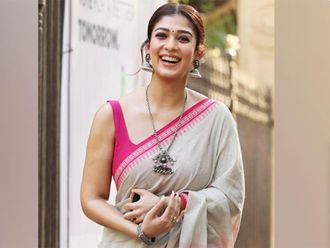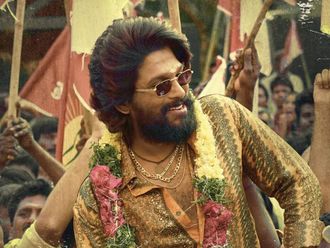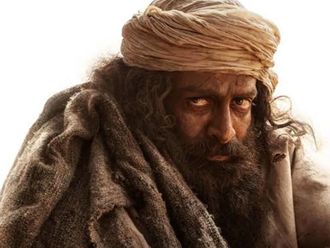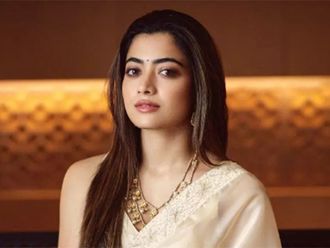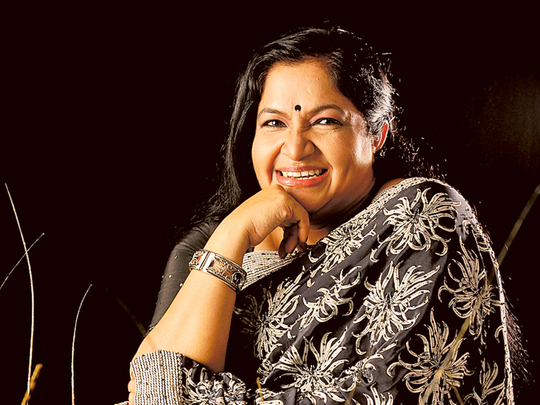
You can never catch Chithra without that smile of hers, the one that crinkles the corners of her eyes.
Affable and easy to chat with, she’s an interviewer’s delight.
Among the many awards sitting pretty in her house are six National Film awards (the only female singer with that distinction) and 16 Kerala state awards (the most for any woman), yet Chithra wears success lightly. She has always been like this, having first met her in 2006.
Chithra, fondly known as Chinna Kuyil (Little Nightingale) has sung more than 18,000 songs in different languages, including in Arabic with singer Jawad Ali for his album Amar-Ul-Hob in 2009.
She performs in Dubai on November 20 on stage with S.P. Balasubrahmanyam. Here are excerpts from an exclusive talk with tabloid!.
Tell us about your first recording with S.P. Balasubrahmanyam.
My first song with Balu sir was in 1984 for Tamil film, Punnagai Mannan. I was 22 then. It was an Ilayaraja composition. When I entered Raja sir’s studio I was not aware then that I would be singing with Balu sir that day. I had only seen his photographs until then, but seeing him in the studio made me very nervous — I was trembling, actually. I observed that he and Raja sir shared a great camaraderie. It was the first time I was seeing a jolly Raja sir. Balu sir put me at ease and motivated me to sing without any inhibitions. I have recorded many songs with him.
How has it been singing with him?
It has been a wonderful learning journey. I must say his encouragement has helped me, especially when it came to high notes. While recording Telugu songs, he guided me on the correct pronunciations of words. With Tamil songs, he taught me how to express each word. What I admire about him is the respect with which he treats every person. During overseas concerts, we singers are first ushered into our rooms by organisers while the orchestra team gets their rooms later. Balu sir will never retire into his room until he sees all his musicians settled into their respective rooms. He calls them ‘my boys’. Our last concert together was in Bahrain a couple of months ago. I am looking forward to accompanying him next year on a world tour.
Can you share some memorable moments of your career?
The day I recorded my first song for music composer M.G. Radhakrishnan is a fond memory. Another moment that I treasure was singing with Das ettan [K.J. Yesudas] the first time for a Malayalam duet. I had grown up listening to his songs on the radio, and then to be singing with him was beyond my dreams. After that, I was referred to ‘as the girl who sang with Yesudas.’ It gave me an identity in the music world. Singing for MSV sir [composer M.S. Viswanathan] was an unbelievable moment. And of course winning my first National award for Sindhu Bhairavi.
What lessons did you learn from Yesudas?
Das ettan’s dedication to music is inspiring. Even while travelling on shows, whenever he has time on his hands, he will be practicing new kirtans [religious songs] and Thyagaraja songs. For him music is everything. He gave me tips on facing the mike without blowing into it and distorting words, and how to enhance the delivery of songs. I also follow Das ettan’s regimen, that is; no oily food, no spices and no cold stuff.
In today’s technology how has recording of songs changed?
In the past, musicians and singers assembled together for a recording at a studio. While the musicians practiced their notes in one room, the lyricist guided me in another room. After rehearsals, we recorded the song. The best moment was listening to the final song, all of us together waiting for the outcome. It was the time to share appreciations, more like a family bonding together. Sometimes corrections were done too. Working together carried an energy that kept us going ahead. I miss that now. Today, singers don’t meet each other as recordings are done separately and later combined together.
You seem to enjoy your role as a judge on reality shows?
Yes, I love the company of children and their innocence. It gives me a positive energy. I am happy to be associated with the show Indian Music League, on Flowers TV. This is a platform where representatives from Kerala’s districts participate and showcase their skills through dance and music. The reward for the winning team is used for a social cause, like building houses for twenty people of a district. I appreciate that.
What about Snehanandana, your charitable trust?
Snehanandana was set up in 2012, in memory of my daughter [who died in Dubai in a pool accident in 2011] and in association with Asianet Satellite Communications. It works towards promoting singers and for the welfare of musicians who have retired and have no revenue. Deserving musicians after assessment by a board of members are paid a monthly pension of Rs3,000 (Dh166.8). We have supported twenty musicians so far.
What do you do on a no-recording day?
I am a stickler and like to keep things organised. I clean up my home, particularly my clothes wardrobe. Sometimes I enjoy drawing plans of houses, maybe a design at someone’s place that I liked. I also update my Facebook and reply to fans’ emails personally.
Don’t miss it!
The Legends In Concert, with playback singers, S.P. Balasubrahmanyam and K.S. Chitra, is on November 20 at the Dubai Duty Free Tennis Stadium, UAE. Tickets for the evening of songs in four south Indian languages and Bollywood popular numbers, in a tribute to Lata Mangheskar, Mohd Rafi, Asha Bhosle and more, are from Dh100-1500 at Platinumlist.net, UAE Exchange Centre Outlets and Choithram; call 055-6360333.



